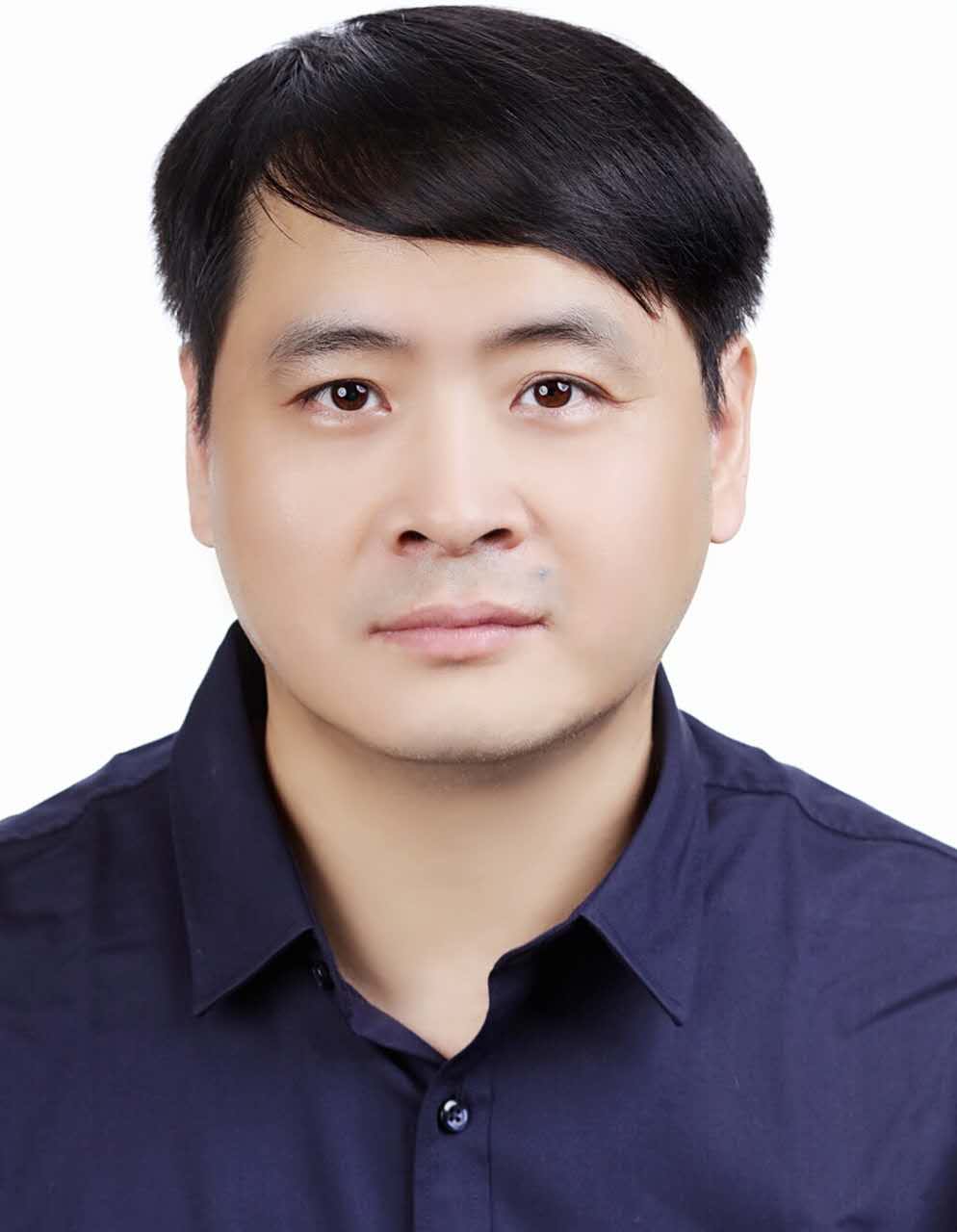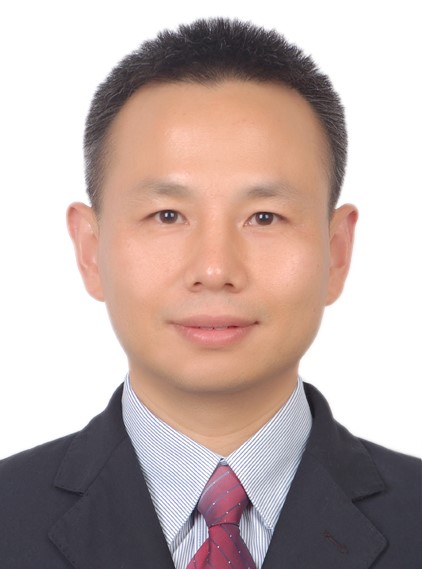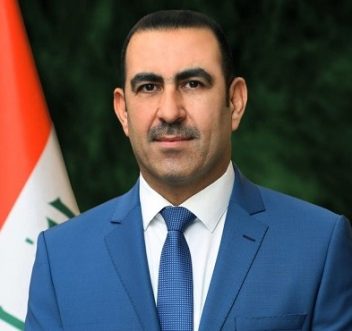Keynote Speaker
Prof. Laurence T. Yang
St Francis University, Canada
Cyber-Physical-Social Systems: Design, Analytics, Security and Privacy
Prof. Laurence T. Yang got his BE in Computer Science and Technology and BSc in Applied Physics both from Tsinghua University, China and Ph.D in Computer Science from University of Victoria, Canada. He is a professor and W.F. James Research Chair at St. Francis Xavier University, Canada. His research includes parallel, distributed and cloud computing, embedded and ubiquitous/pervasive computing, and big data. He has published 200+ papers in the above areas on top IEEE/ACM Transactions/Journals including 6 and 25 papers as top 0.1% and top 1% highly-cited ESI papers, respectively. He has been involved actively act as a steering chair for 10+ IEEE international conferences. He is the chair of IEEE CS Technical Committee of Scalable Computing (2008-2011, 2018-), the co-chair of IEEE SMC Technical Committee on Cybermatics (2016-) and the vice-chair of IEEE CIS Technical Committee on Smart World (2016-2019). In addition, he is serving as an editor for many international journals and is an author/co-author or an editor/co-editor of more than 25 books from well-known publishers, invited to give around 50 keynote talks at various international conferences and symposia. His recent honours and awards include IEEE Canada C. C. Gotlieb Computer Medal (2020), Fellow of Institute of Electrical and Electronics Engineers (2020), IEEE TCCPS Most Influential Paper Award on Cyber-Physical Systems (2020), IEEE SCSTC Most Influential Paper Award on Smart Computing (2019), IEEE TCBD Best Journal Paper Award on Big Data (2019), Clarivate Analytics (Web of Science Group) Highly Cited Researcher (2019), Fellow of Engineering Institute of Canada (2019), A Miner Most Influential Scholar Award for Internet of Things (2018), IEEE TCCPS Distinguished Leadership Award on Cyber-Physical Systems (2018), IEEE SCSTC Life-Career Achievement Award on Smart Computing (2018), Fellow of Canadian Academy of Engineering (2017), IEEE System Journal Best Paper Award (2017), IEEE TCSC Award for Excellence in Scalable Computing (2017), Elsevier JCSS Journal Most Cited Paper Award (2017) and the PROSE Award on Engineering and Technology (2010).
Abstract: The booming growth and rapid development in embedded systems, wireless communications, sensing techniques and emerging support for cloud computing and social networks have enabled researchers and practitioners to create a wide variety of Cyber-Physical-Social Systems (CPSS) that reason intelligently, act autonomously, and respond to the users’ needs in a context and situation-aware manner. The CPSS are the integration of computation, communication and control with the physical world, human knowledge and sociocultural elements. It is a novel emerging computing paradigm and has attracted wide concerns from both industry and academia in recent years. Currently, CPSS are still in their infancy stage. Our first ongoing research is to study effective and efficient approaches for CPSS modelling and general system design automation methods, as well as methods analyzing and/or improving their power and energy, security, trust and reliability features.
Once the CPSS have been designed, they collect massive data (Volume) from the physical world by various physical perception devices (Variety) in structured/semi-structured/unstructured format and respond the users’ requirements immediately (Velocity) and provide the proactive services (Veracity) for them in physical space or social space. These collected big data are normally high dimensional, redundant and noisy, and many beyond the processing capacity of the computer systems. Our second ongoing research is focused on the Big Data-as-a-Service framework, which includes data representation, dimensionality reduction, incremental and distributed processing, security and privacy, deep learning, clustering, prediction and proactive services, aiming at representing and processing big data generated from CPSS, providing more valued smart services for human and refining the previously designed CPSS.
This talk will present our latest research on these two directions. Corresponding case studies in some applications such as smart traffics will be shown to demonstrate the feasibility and flexibility of the proposed system design methodology and analytic framework.
___________________
____________
Keynote Speaker
Prof. Radu Prodan
Institute of Information Technology, Alpen-Adria-Universität Klagenfurt, Austria
https://itec.aau.at/research/distributed-and-parallel-systems/
Distribute one Billion
Radu Prodan is a professor in distributed systems at the Institute of Software Technology, University of Klagenfurt. He received his PhD in 2004 from the Vienna University of Technology and was Associate Professor until 2018 at the University of Innsbruck, Austria. His research interests include performance, optimization, and resource management tools for distributed and parallel systems. He participated in numerous national and European projects. Presently he coordinates the Horizon 2020 project ARTICONF that researches a decentralized platform and ecosystem for next generation social media applications. He authored over 200 publications and received two IEEE best paper awards.
Abstract:
We live in a digital world estimated to host around 4.5 billion Internet users and 10 billion of mobile connections generating 2.5 billion billion of data every day. The global big data and business analytics market valued at 169 billion U.S. dollars in 2018 expects to grow to 274 billion U.S. dollars in 2022. Managing and extracting value from this sheer amount of raw data requires deep software analysis, such as deep learning methods with billions of configuration parameters using massive distributed and parallel computing infrastructures aggregating billions of cores and threads.
The talk gives an overview of the research activities at the University of Klagenfurt, Austria, on optimizing system software support for extreme-scale data processing applications. The focus will be on social media, entertainment, and streaming, engaging over 3.6 billion people in 2020 and expected to grow to 4.41 billion in 2025.
____________
Keynote Speaker
Professor Geyong Min,
University of Exeter, U.K.
Towards Reliable and Intelligent Internet-of-Everything
Professor Geyong Min is a Chair in High Performance Computing and Networking. His research interests include Computer Networks, Cloud and Edge Computing, Mobile and Ubiquitous Computing, Systems Modelling and Performance Engineering. His recent research has been supported by European Horizon-2020, UK EPSRC, Royal Society, Royal Academy of Engineering, and industrial partners. He has published more than 200 research papers in leading international journals including IEEE/ACM Transactions on Networking, IEEE Journal on Selected Areas in Communications, IEEE Transactions on Computers, IEEE Transactions on Parallel and Distributed Systems, and IEEE Transactions on Wireless Communications, and at reputable international conferences, such as SIGCOMM-IMC, INFOCOM, and ICDCS. He is an Associated Editor of several international journals, e.g., IEEE Transactions on Computers, and IEEE Transactions on Cloud Computing. He served as the General Chair or Program Chair of a number of international conferences in the area of Information and Communications Technologies.
Abstract:
Internet-of-Everything aims to create a smart environment built upon the Future Internet for intelligent healthcare, smart energy, intelligent manufacturing, smart transportation, smart cities, etc. A grand challenge in massive Internet-of-Everything is how to achieve high reliability and intelligence for the emerging mission-critical applications, such as autonomous driving, intelligent robots, and Industry 4.0. To address this challenge, this talk will present a generic autonomic network architecture for Internet-of-Everything, introduce new methods for data modelling and analysis, and present a cost-effective distributed big data processing platform developed to support intelligent decision-making for improving the system design, reliability, and resource optimization.
_______
Invited Industrial Speaker
Prof. Khalid Battal Najim
Iraqi Minister of Planning, President of Anbar University, Iraq.
Technology to Support a Sustainable Economy: Iraqi vision 2030.
Prof. Khalid Battal Najim is an Academic and Politician, currently the Iraqi Minister of Planning within the Iraqi government. As an academic, he is the President of Anbar University. Prof Khalid holds a PhD in Civil Engineering from the University of Nottingham in Britain. He is actively involved in different academic and international research committees. Professor Khalid is the general chair in Special Sessions for several international conferences and has published well over 50 peer-reviewed international research papers in the important area of sustainable buildings. Prof Khalid is an international reviewer for a number of international journals and conferences and is also involved in different strategy committees for research Quality Control.
Abstract: The focus within Prof. Khalid’s talk is on energy consumption and the affects it has on the economy. About 70% of the total consumed energy in Iraq is a result of the air-conditioning of public and commercial buildings in addition to the residential homes. Improving the thermal insulation of these buildings will help to reduce the energy consumption for this purpose which would contribute in reactivating the industry and agriculture sectors by increasing the electricity provision. Thus, more factories would be generated, and more lands would be planted which activate the labour market and increase the investments and improve the private sector.
Additionally, in Iraq, there is an abundance of rubble, from buildings affected by wars, that can be recycled and used to rebuild the country. This would reduce the cost of buildings and create a better environment, resulting in an improved economy. In addition, the raw materials such as aggregate would be saved for coming generations and reduce the used lands as quarries. Thus, the basic concept of the sustainable development would be achieved.
Using advanced technology, the Iraqi vision 2030 is achievable. Several elements will be constructed and sustained by advanced technology, in terms of energy production, improving agriculture, enhancing the uses of water and irrigation and the remodelling of transportation. Furthermore, the automation of factories to ensure better energy consumption.
___________________
Invited Industrial Speaker
Dr. Obinna Anya
UX Research Scientist at Google, USA
Beyond Usability: Exploring New HCI Research Approaches for Future eSystems
Dr. Obinna Anya is a UX Research Scientist at Google working on Cloud Artificial Intelligence and Industry Solutions. He was previously a Research Staff Member at IBM, and prior to that, a Research Scientist at Liverpool Hope University, UK. He received a PhD in Computer Science (Human Computer Interaction) and an MSc in Distributed Systems from the University of Liverpool, UK, and a BSc in Computer Science from the University of Nigeria. His research interests include context-aware interaction, big data analytics, enterprise collaborative systems, and usable machine learning. His work has been published in high-quality peer-reviewed journals and academic conferences. He serves on the editorial boards of the Journal of Future Generation Computer Systems and the Journal of Reliable Intelligent Environments, and on the program committees of leading international conferences.
Abstract
MarketResearchEngine.com predicts that service robotics market will exceed $ 30 Bln. by 2024 with a compound annual growth rate of 15% within the given forecast period. A rapid growth of the market is partially occurring due to the fact that robots are expected to take over existing positions, which are currently occupied by human labor. Today service robotics market is characterized by a growing demand of short- to medium-term payback period and high return on investment, while rising usage of robots is clearly detected in several sectors including education and research, communication, defense, rescue and security. First of all robotics market is a “blue ocean”, which means it has vast marketing options since robotics still belongs to a rather unknown and innovative industry. In Promobot company we understand it and believe that each entrepreneur, who will attempt to work in the market of service robots, could become very successful. Also, we think that it is very inspiring and interesting to create new robotics products that help improving the world.






